Author Alan Hollinghurst on the sauciest sex scene in literature and new novel Our Evenings
In partnership with Audible
By James Hodge
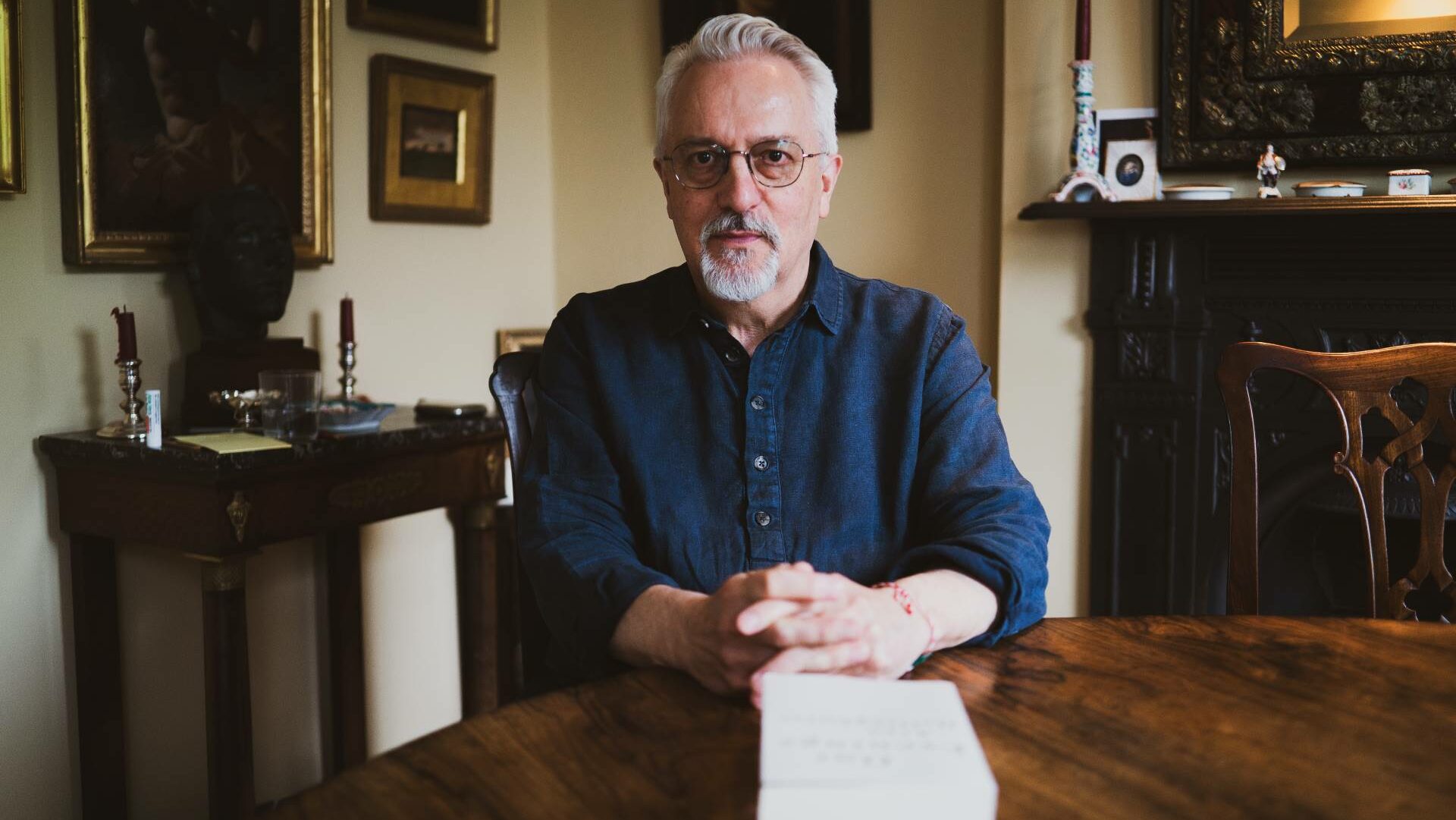
Alan Hollinghurst is without doubt one of the greatest LGBTQ+ writers in living history, having paved the way for the panoply of queer writing today.
First published during the AIDS crisis, his novel The Swimming Pool Library became an instant hit. But perhaps his most famed work is The Line of Beauty, which earned him the Man Booker Prize in 2004.
A prolific author, Hollinghurst has continued to write stories that examine queer identity from every angle, exploring generational change, social class and, in his latest novel, Our Evenings, the perspective of a mixed-race protagonist. Here, Hollinghurst delves into the many works that have inspired his latest book, as well as selecting the greatest coming-of-age novel.
We also share our picks of our best recent reads, as well as our current favourite audiobook available on Audible.
What is the best novel with a non-white protagonist?
Tell Me How Long the Train’s Been Gone, James Baldwin’s magnificent first-person novel about a great African-American actor whose life is a battleground of sexual and racial conflicts and confusions.
What is your favourite text set in the evening?
Gerard Manley Hopkins’s mega-sonnet Spelt From Sybil’s Leaves, recited by Dave Win at a turning point in Our Evenings. I won my school reading competition with it 54 years ago, and still know it by heart.
What is the sauciest gay sex scene in literature?
The luscious scene between Jesse the rent boy and his client Thurston in Mendez’s Rainbow Milk – all the more memorable because it goes wrong.
What is the queerest Shakespeare play?
Troilus and Cressida, by a long way, with its homoerotic yearnings between military heroes, and the amazing camp patter of Pandarus.
What is the greatest coming-of-age novel?
A Boy’s Own Story by Edmund White – a quite new kind of truth-telling about growing up gay, shocking in detail, luxuriant in style.
Who is a writer who inspired Our Evenings?
Pre- and post-independence visions of Burma, George Orwell’s bleak novel Burmese Days and Golden Earth by Norman Lewis, perhaps the best travel book I’ve ever read.
Why was this the novel that you wanted to write now?
As I’ve become older I’ve become more and more interested in thinking about the whole expanse of life. This time, I knew from the start it was going to be in the form of a memoir, and so it would follow one life all the way through. The title, Our Evenings, has a retrospective, recollective glow to it.
Why was the form of the memoir important to you?
It’s funny how memory changes, and your sense of the past changes as you get older. One thing I wanted the book to reflect structurally was the extreme expansiveness of time when you’re young and you’re contained within a system. Life has a fixed shape. You’re progressing from year to year. Also, you’re changing tremendously and growing as all the hormonal things happen. Life is immense at that stage. As you get into later middle age, time goes faster and faster. You can’t remember things. And suddenly, everything speeds up towards the end. I wanted to recreate that as the novel continues, which may take the reader by surprise. It’s a bit of an acceleration.
What were the privileges and challenges of writing a mixed-race protagonist?
I wanted to try and write from a different racial perspective at some time. Of course, the whole question of that became so much more politicised, and I’m very aware of the dangers of it and the presumption of writing from a different racial perspective. I think I knew from the start that I couldn’t write something from the point of view of a Jamaican or Trinidadian immigrant or something like that. It would be presumptuous, and it would be superfluous. And there is already such a rich literature produced by people of those backgrounds. What’s the point? But still, I wanted a way to get at it. Having this biracial central character and narrator from a relatively unusual foreign background seemed to be quite a promising way in, because his biracialness allowed me to explore race issues thoughtfully but also to put a lot of myself into the character, hopefully in a plausible way.
You have often been described as the forefather of queer literature. What are your memories of those early days as a novelist?
When The Swimming Pool Library was released 36 years ago, it emerged into a world so different from the one we’re living in now. It was one of the first novels exploring this whole world of gay experience and history in Britain. There was a fascinating sense of novelty and urgency about it all. I think in that period, gay writing as a recognisable thing came into being. It had a political urgency to it, of course, through the very difficult years of the mid-80s and the AIDS-generated anti-gay backlash and everything. It was a very turbulent time. But it’s fascinating writing about queer life because of the way it’s constantly changing. It never stays still.
What’s your personal philosophy on love?
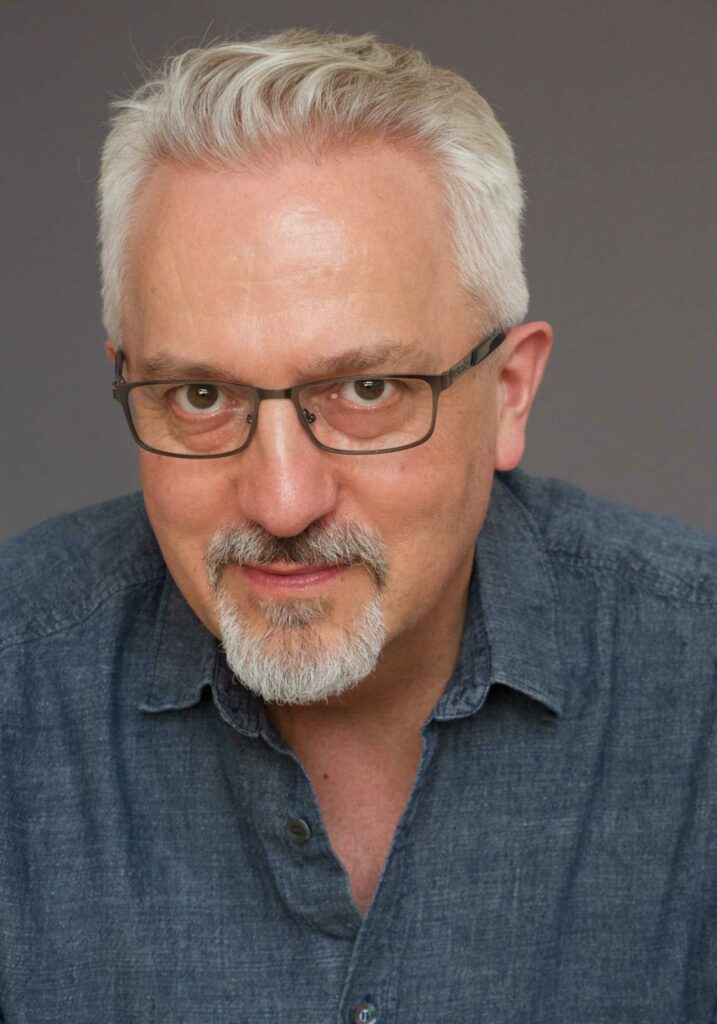
I am quite romantic and actually always have been. I was steeped in a world of romantic poetry and art and music from a very early age, perhaps giving me rather misleading expectations of what life itself would be like. But in my writing, I’m as interested in the romantic as the unromantic parts of relationships. This novel is essentially a memoir of meaningful relationships: the inappropriate love of a schoolmaster; the youthful lust towards the unavailable straight boy; an affair with an older man and, eventually, the person he wants to spend his life with. But it’s as much about falling out of these relationships: I’m fascinated by the gap between what one says as opposed to what one is truly thinking and feeling underneath.
You are most associated with high culture. What is your queer guilty pleasure?
In the old days, when I used to love going clubbing, I did, to my great surprise, discover how fabulous house music was. I would go to clubs like Fabric, and it produced in me quite a stimulated state, opening my mind to its patterns and rhythms. It became, of course, the complement to a lot of blissful experiences, endless nights and new encounters. It actually became very romantic to me, I suppose. I hung up my dancing shoes when I was 60.
If you were to write something totally different to your norm, what would it be?
My dream is really not to write a novel at all. After completing every novel manuscript, I tend to feel it’s probably the last one I will write. God, it’s a struggle. I’m never going to do this again. But really, I probably will. I’d love to write something really short. I always intend to – but then the writing begins and suddenly it’s another hefty manuscript.
What advice would you have to aspiring queer writers?
On the one hand, the wonderful thing about being queer is the liberation from all kinds of other constraints that might be put upon you. It’s something I’ve always found rather exhilarating and leads to such originality. However, there is also the technical. Have a plan. Stick at it. Read. Reading is such a fundamental part of writing, and I think that often comes as a bit of a shock to people who feel, “Oh, I must have a novel in me.” See what is the particular thing that you have to say yourself that will be the interesting testimony that you have to add to the world, whilst learning from the craft of the writers who came before you.
What novel best captures theatre life?
At Freddie’s, Penelope Fitzgerald’s very funny and disconcerting novel about a theatre school for children, ending with an image of the actor’s ambition that I will never forget.
Recommended reading…
Attitude shares our best recent reads, alongside our current favourite Audible audiobook.
Isaac by Curtis Garner (Paperback out 10 November)
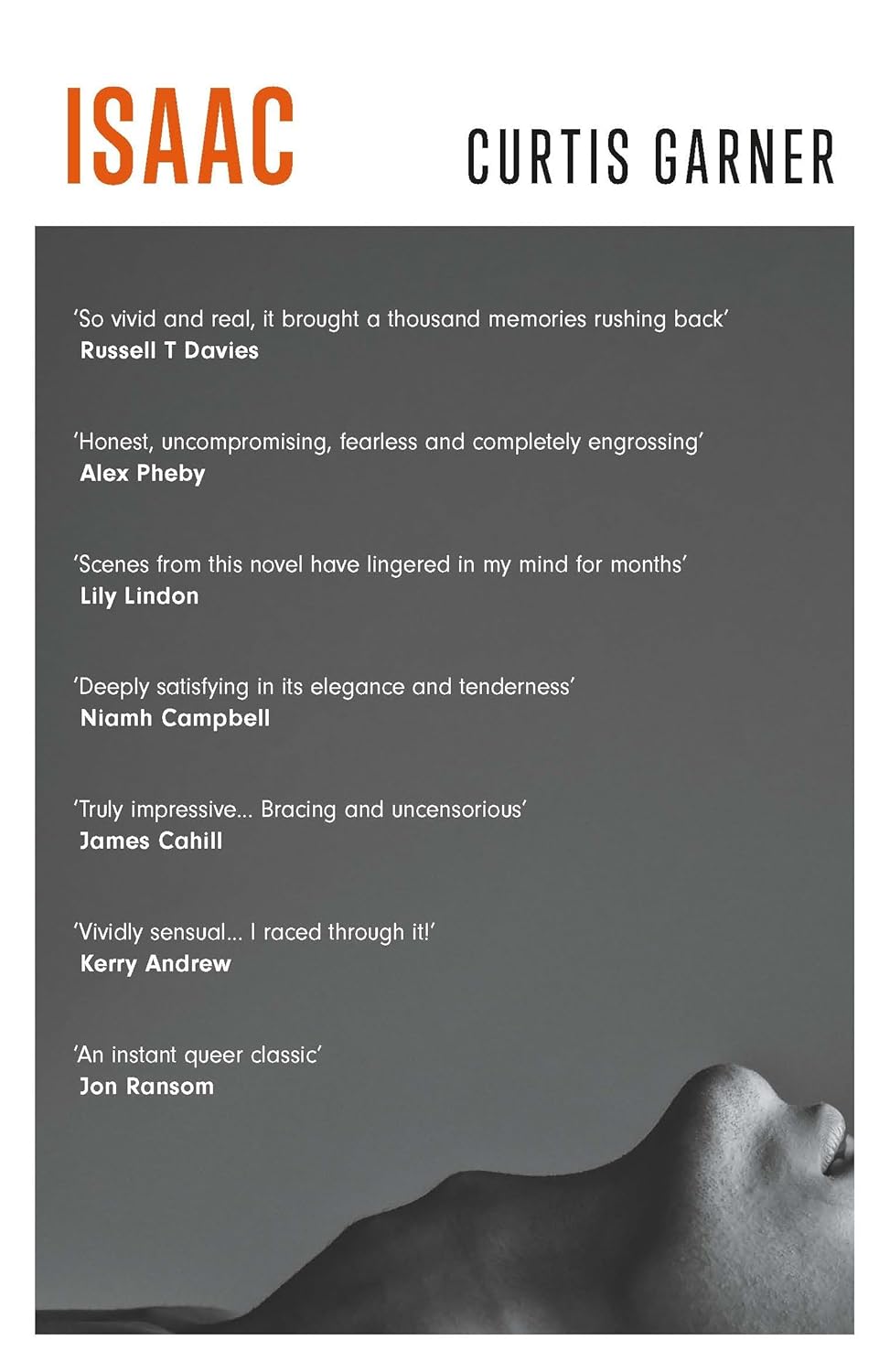
Sometimes, literature is a mirror in which our lives are reflected back at us. In debut novel Isaac, Curtis Garner captures the complexities of coming of age as a young, queer person. As protagonist Isaac turns eighteen, he is ready to taste freedom. However, with age comes the struggles of adulthood: family revelations; inappropriate desires; friendship pressures; and the discovery of bad men. Garner portrays the challenges of exploring sexuality as a young person taking their first steps into a big gay world. Isaac’s journey is every queer reader’s journey delivered with wit, honesty, sexuality and tenderness.
Mammoth by Eva Baltasar (Paperback out now)
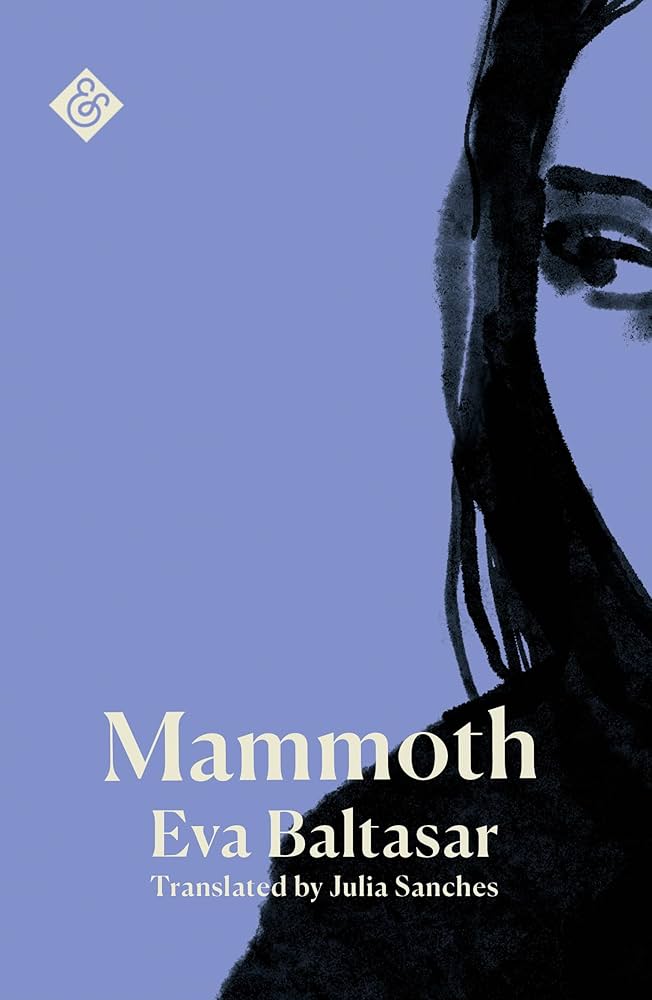
If the best things come in small packages, English Pen Award winner Eva Baltasar proves with new novella Mammoth that short books can pack the biggest punches. Intrigue is established in the first line – a disenfranchised unnamed lesbian throws a fertility party with the hope of becoming pregnant. However, after her attempts fail, our heroine moves to the wilds of rural Spain where desire for creation becomes a hunger for destruction. Spare, stripped back and raw, this disturbing journey into unconscious and animalistic desires is unforgettable, leading to an unexpected and powerful climax.
AUDIO BOOK PICK
Queer as Folklore by Sacha Coward (Available now)
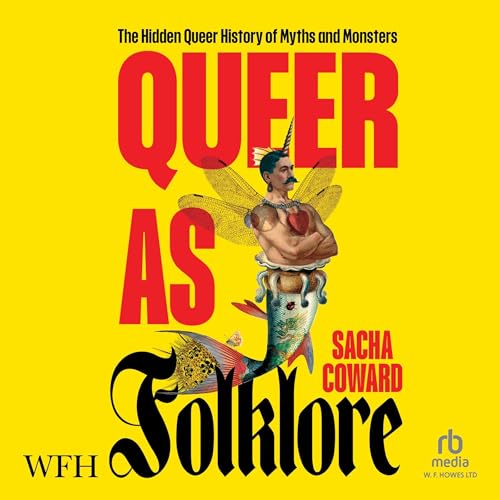
What do the words bizarre, deviant, unorthodox, unfamiliar and freaky have in common? All are – depending on context – synonyms for ‘queer’. In Sacha Coward’s monstrous tome, Queer As Folklore, he dives into a panoply of queer anthropology to uncover all things magical, ethereal, strange and other, considering how their origins intersect with the history of LGBTQ+ people.
The key to excellent non-fiction is storytelling. Coward shows himself to be an artful hand at simultaneously being the enthused archaeologist whilst also an engaging writer who deftly skirts both the realms of intellectual and popular culture. Here, you will find notes on secretly sapphic artworks of mermaids, a brief history of the countercultural queer movement Radical Faeries, and even learn how narwhal tusks used to be sold as sex toys. Best of all, this book is now available on Audible, read by Will Watt, who shares in Coward’s passion for intrigue and mystery.
New to Audible? Get a three-month free trial and enjoy bestselling audiobooks, exclusive Originals, and more by clicking here.
